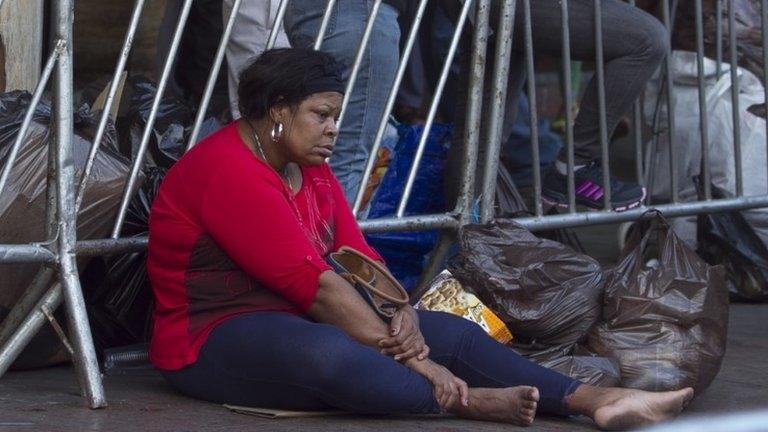Venezuela economy: Nicolas Maduro declares emergency
- Published
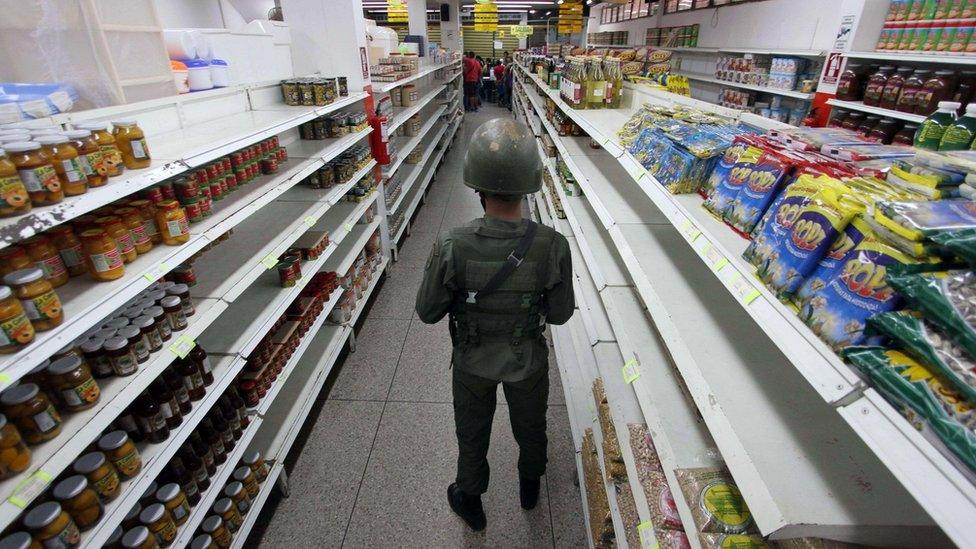
Some Venezuelan supermarkets are now guarded by soldiers, as prices rise and consumers are squeezed
The Venezuelan government has announced a 60-day economic emergency to deal with the country's worsening crisis.
If passed by the National Assembly, it would give the president wider powers to intervene in companies or limit access to currency.
The edict includes tax increases and puts emergency measures in place to pay for welfare services and food imports.
Official figures suggest that the Venezuelan economy had contracted by 4.5% in the first nine months of 2015.
The emergency was declared hours before President Nicolas Maduro delivers a State of the Nation address to Congress for the first time since his centre-right opponents took control of the legislature.
The decree would also impose more state controls on businesses, industrial productivity and on electronic currency transactions.
Oil price fall
Venezuela has the world's biggest known oil reserves but the huge fall in oil prices in the past 18 months has slashed its revenues by 60%.
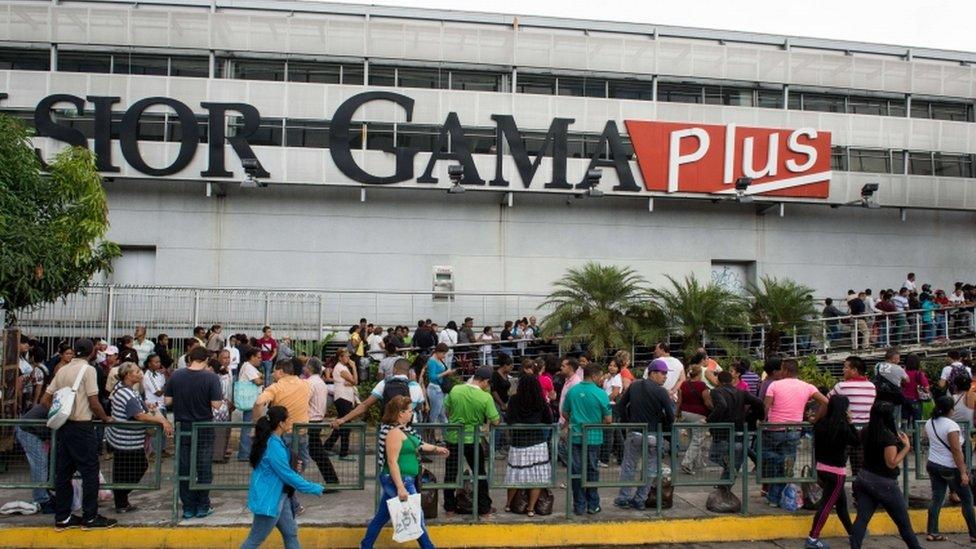
The country has been suffering from food and basic goods shortages
Annual inflation up to September 2014 is said by the Venezuelan Central Bank to have reached 141%.
President Maduro and new Economy Minister Luis Salas have argued for the need to protect social programmes established by his predecessor, former President Hugo Chavez, from the global drop in oil prices.
Oil exports account for as much as 95% of Venezuela's revenue.
The government says the country's soaring inflation and basic goods shortages have been induced by political opponents.
Correspondents say Venezuelans will be watching carefully to see if the opposition-dominated Congress will approve the emergency measure.
- Published3 December 2015
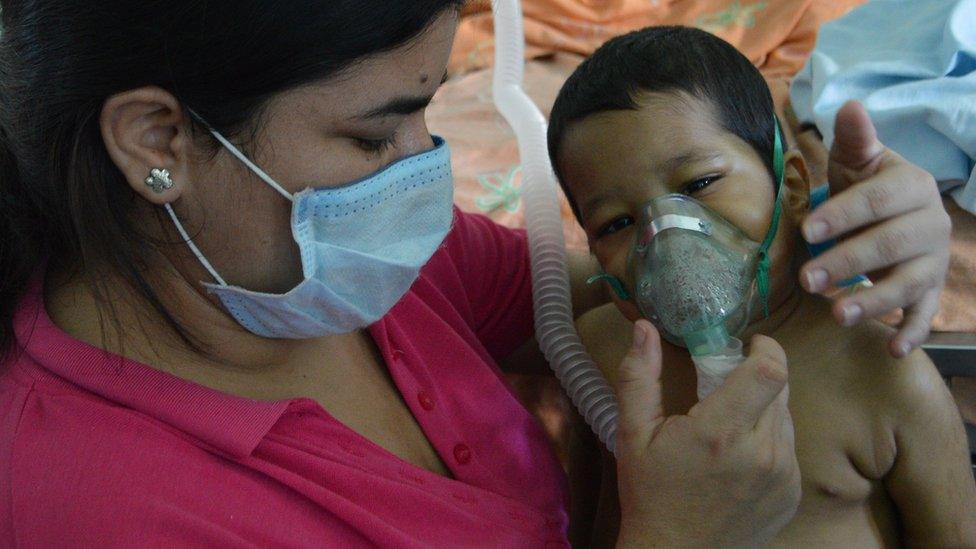
- Published7 January 2016
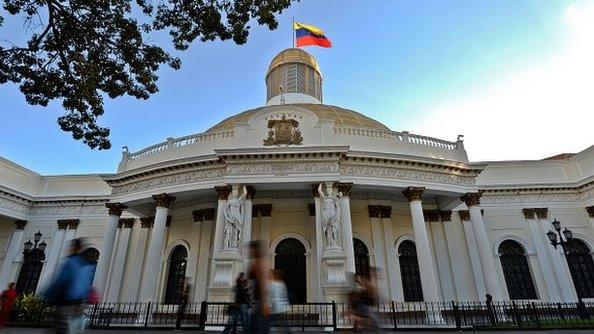
- Published16 January 2014
